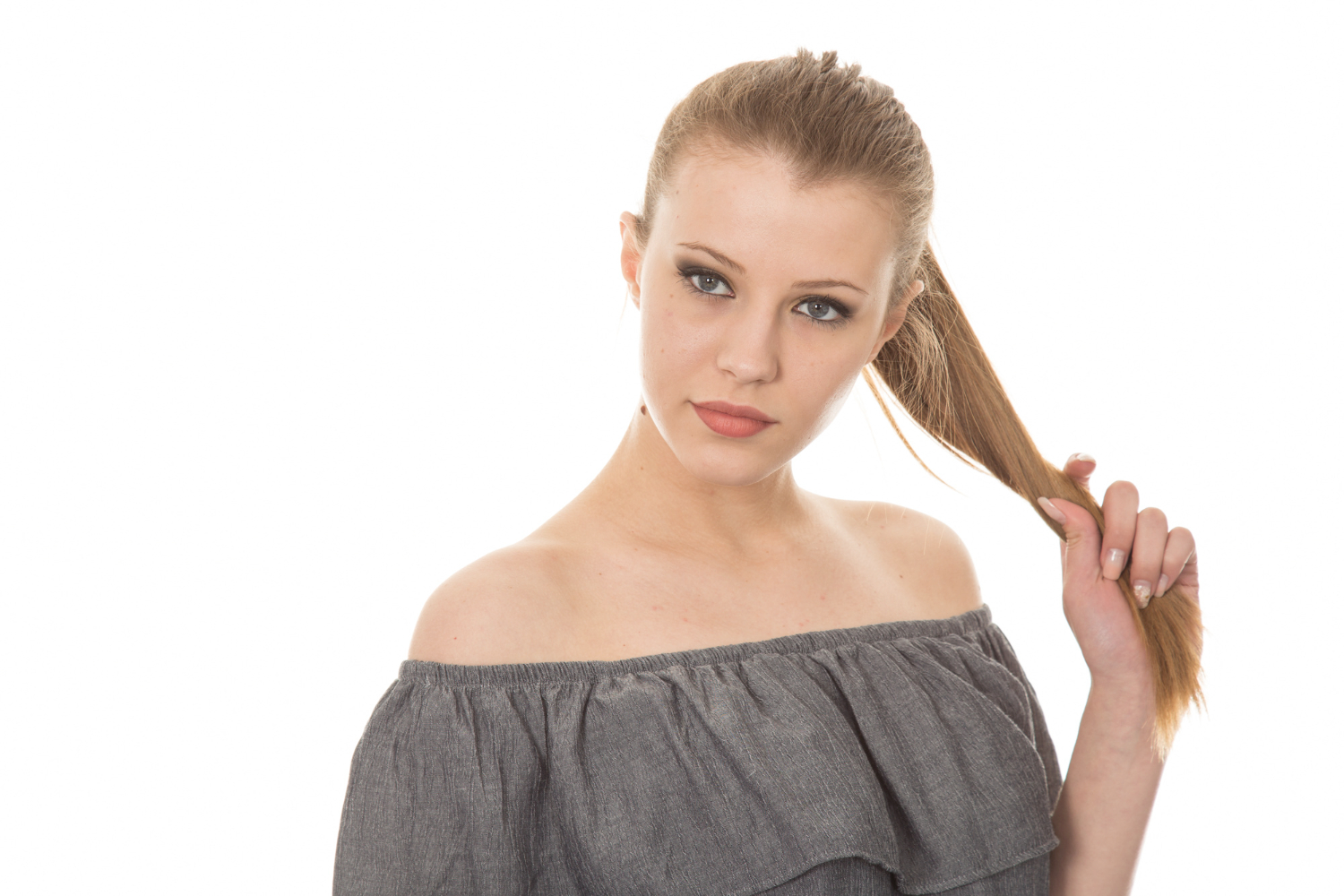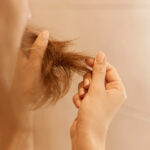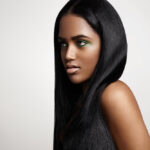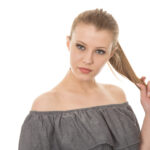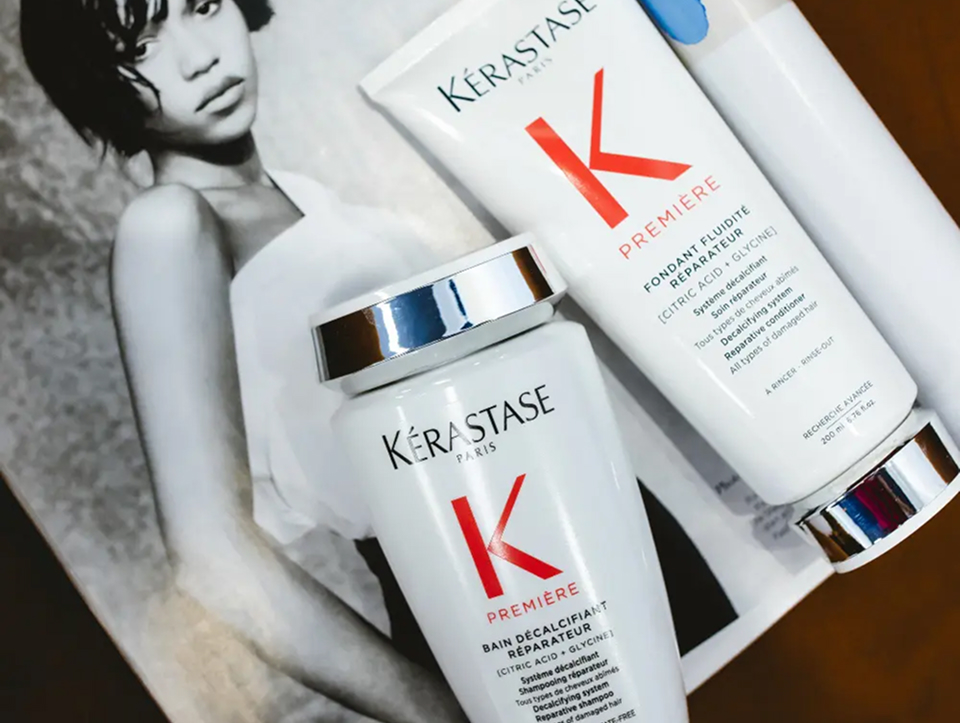You love experimenting with different hairstyles, but did you know some damaging hairstyles can secretly harm your hair?
From tight ponytails to wet updos, these common styles might be causing breakage, thinning, or even long-term damage.
The good news? With a few tweaks, you can protect your strands while still looking chic.
8 Damaging Hairstyles
| Damaging Hairstyle | Why It’s Harmful | Protective Tips |
|---|
| Same Ponytail Every Day | Constant tension at the base causes breakage and hair loss. | Rotate hairstyles, use fabric-coated hair ties, and keep ponytails loose. |
| Tight Braids | Pulling hair too tightly stresses follicles and may cause traction alopecia. | Wear braids looser, moisturize scalp, take breaks between braids. |
| Wet Updos | Hair is fragile when wet; tying can snap strands as it dries. | Let hair air dry, use a shine spray for style instead of tight ties. |
| Blowout-Preserving Buns | Friction from cotton pillowcases and tension causes breakage overnight. | Sleep on satin/silk pillowcases, avoid tight buns. |
| Pin-Straight Hair | Heat breaks internal hair bonds, causing split ends. | Limit heat styling, use heat protectants, consider keratin or amino-acid treatments. |
| Hair Extensions | Extra weight and bonding can pull natural hair, causing breakage. | Choose semi-permanent/clip-free extensions like tape-ins, and maintain extensions properly. |
| Chemical/Color-Treated Hair | Repeated coloring and chemicals weaken the hair shaft. | Stick closer to natural tones, rotate color treatments, and use protective treatments like hair gloss. |
| Long Hair | Heavy long hair causes fragile ends and permanent part lines. | Trim every 8–12 weeks, moisturize ends, consider layering to reduce weight. |
How Damaging Hairstyles Affect Your Hair
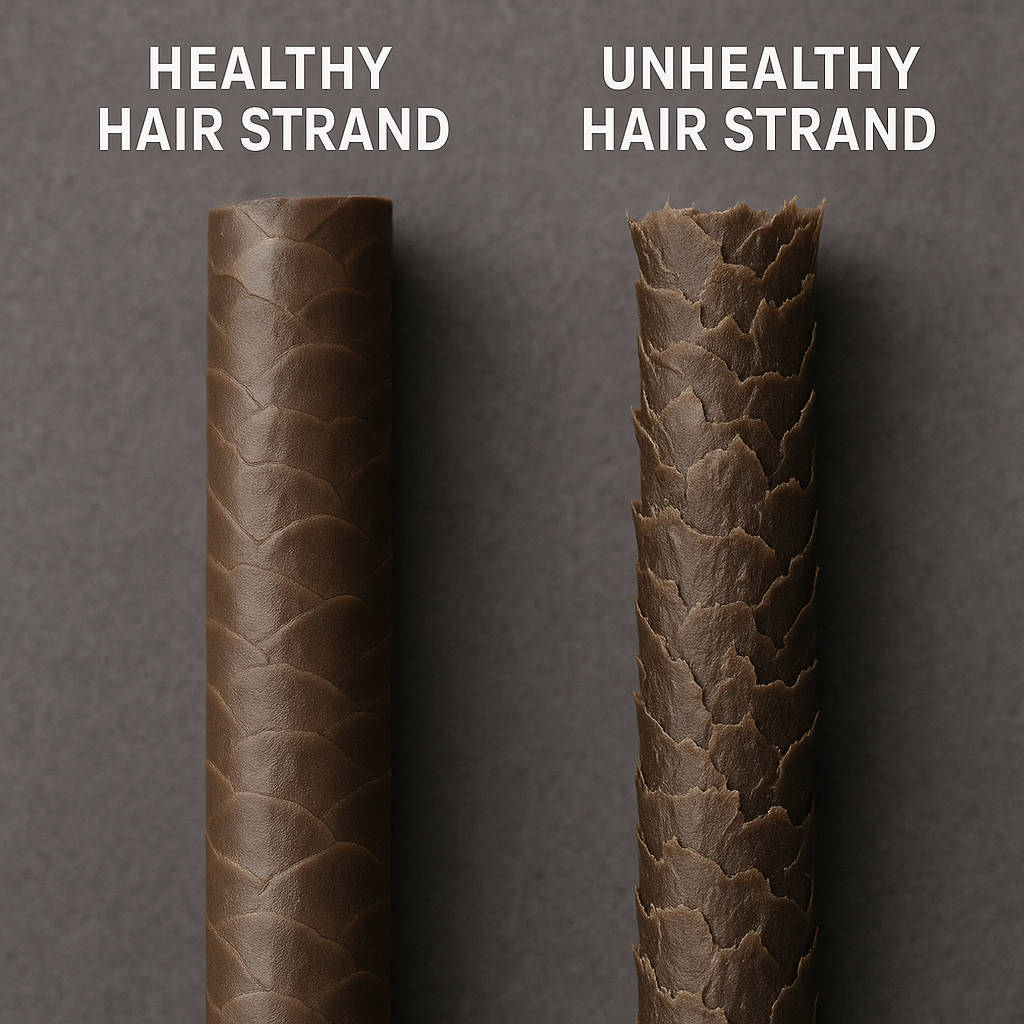
Some hairstyles put stress on your strands and follicles. Wearing the same damaging hairstyles daily, applying excessive heat, or using heavy extensions can cause:
- Breakage at the roots
- Split ends and thinning
- Scalp irritation or traction alopecia
- Weakened hair shaft and fragile ends
Even hairstyles that look polished, like sleek buns or straightened hair, can be silently harming your hair.
Why These Hairstyles Cause Damage
Hair experts and studies confirm that repeated tension, heat, or chemical treatments can break hair bonds and weaken follicles:
- Tight ponytails or buns create tension that may snap hair at the base
- Braids pulled too tightly can lead to traction alopecia, a form of hair loss
- Wet updos increase hair breakage, as damp hair is fragile
- Frequent straightening or chemical treatments break internal bonds, forming split ends
💡 You can support hair recovery using treatments like a hair gloss treatment or a scalp treatment to strengthen and moisturize your strands.
How to Reduce Damage While Styling
Here are practical tips to protect your hair while still enjoying your favorite styles:
Rotate Ponytails & Buns
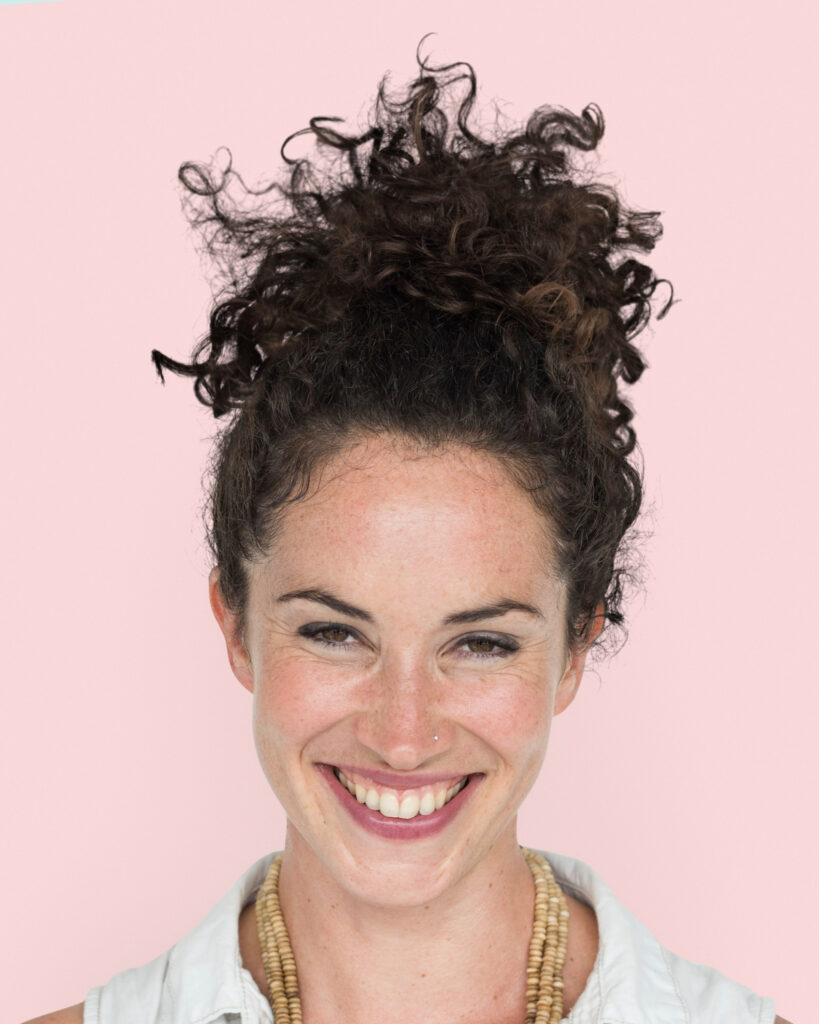
Avoid wearing the same ponytail every day. Switch to a loose style and use gentle hair ties like Kitsch fabric ties.
Loosen Braids
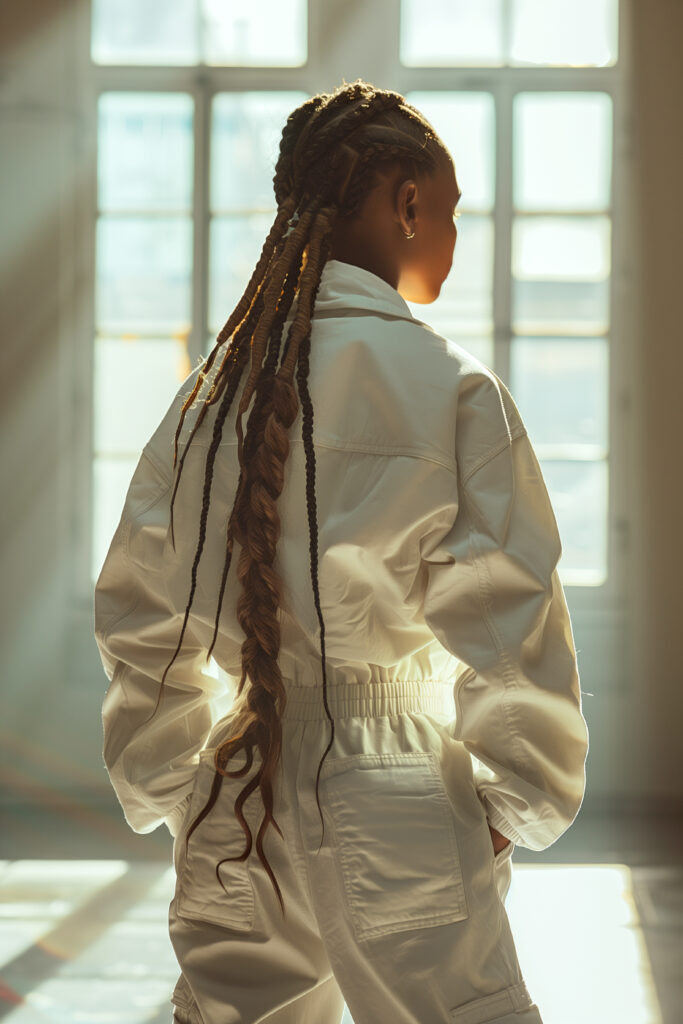
Wear braids comfortably and take breaks between styles. Moisturize your scalp with essential oils to reduce stress.
Avoid Tying Wet Hair
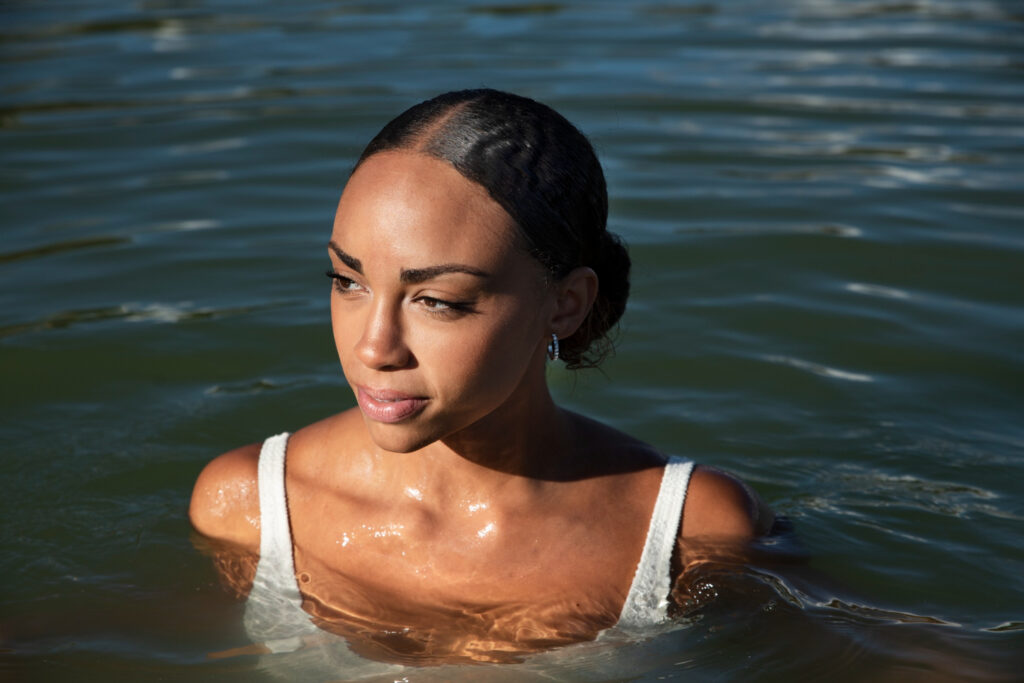
Wet hair is fragile. Let it air dry or apply a shine spray before styling.
Protect Heat-Styled Hair
Limit straightening, curling, or blowouts. Use heat protectants and consider keratin treatments to prevent bond breakage.
Care for Extensions Properly
Choose semi-permanent, clip-free options to reduce pull on your natural hair. Check out tape-in extensions for a gentler solution.
Mind Color & Chemical Treatments
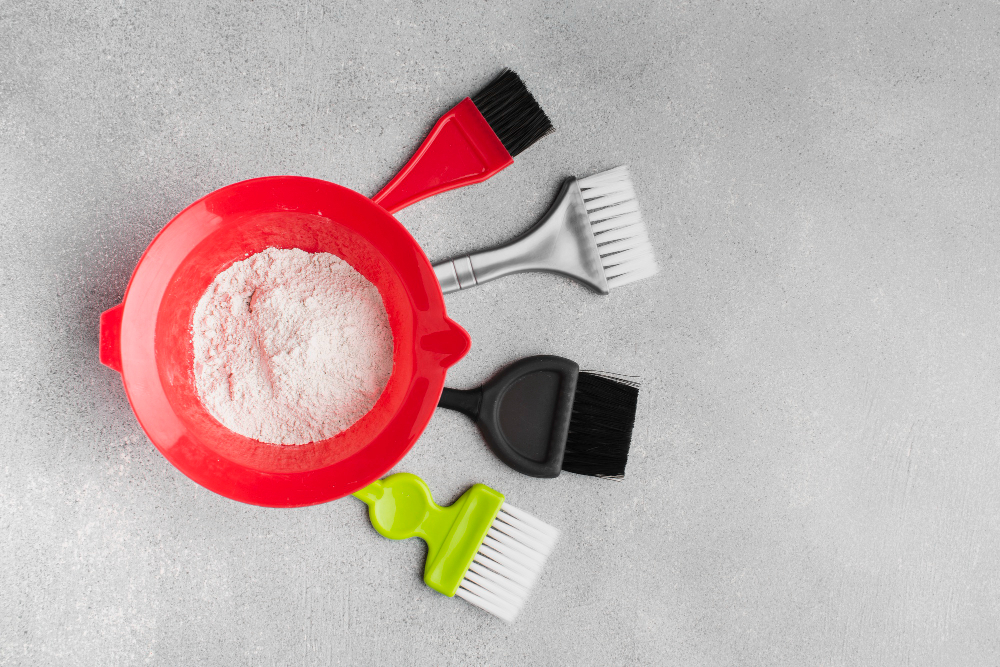
Stick to shades closer to your natural color and avoid overprocessing. Rotate treatments seasonally for less stress on hair.
Trim Long Locks Regularly
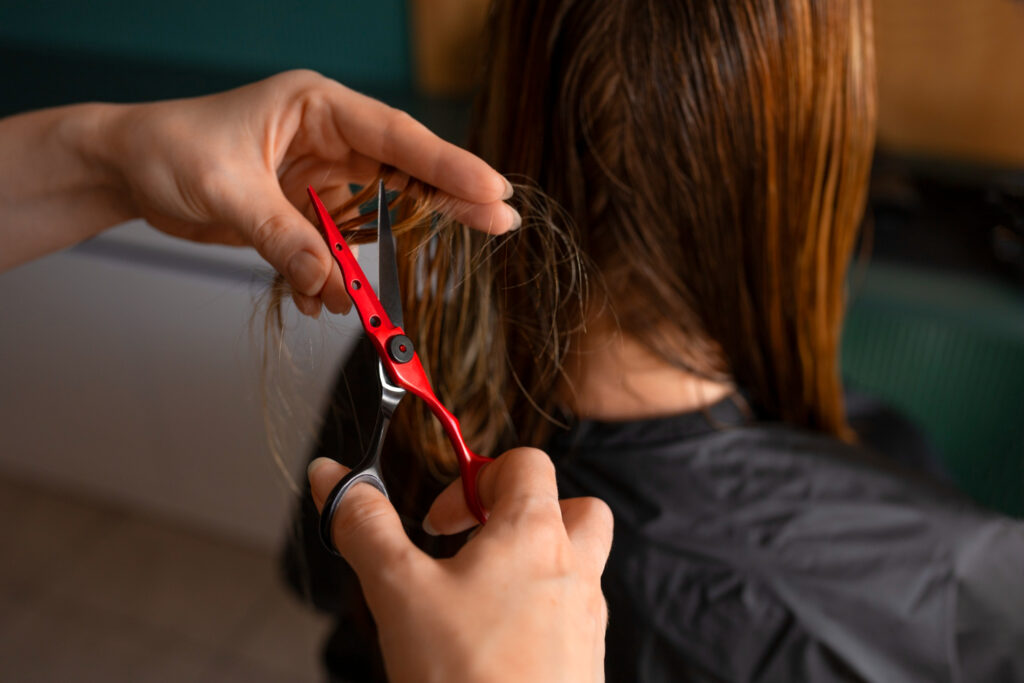
Long hair looks beautiful, but is prone to knots and split ends. Regular trims every 8–12 weeks help maintain strength.
Embrace Gentle Styles
Messy updos, loose waves, or low ponytails reduce tension and breakage compared to tight, daily styling.
💡 Check out these holiday hair care tips
Enjoy Stylish Hair Without the Damage
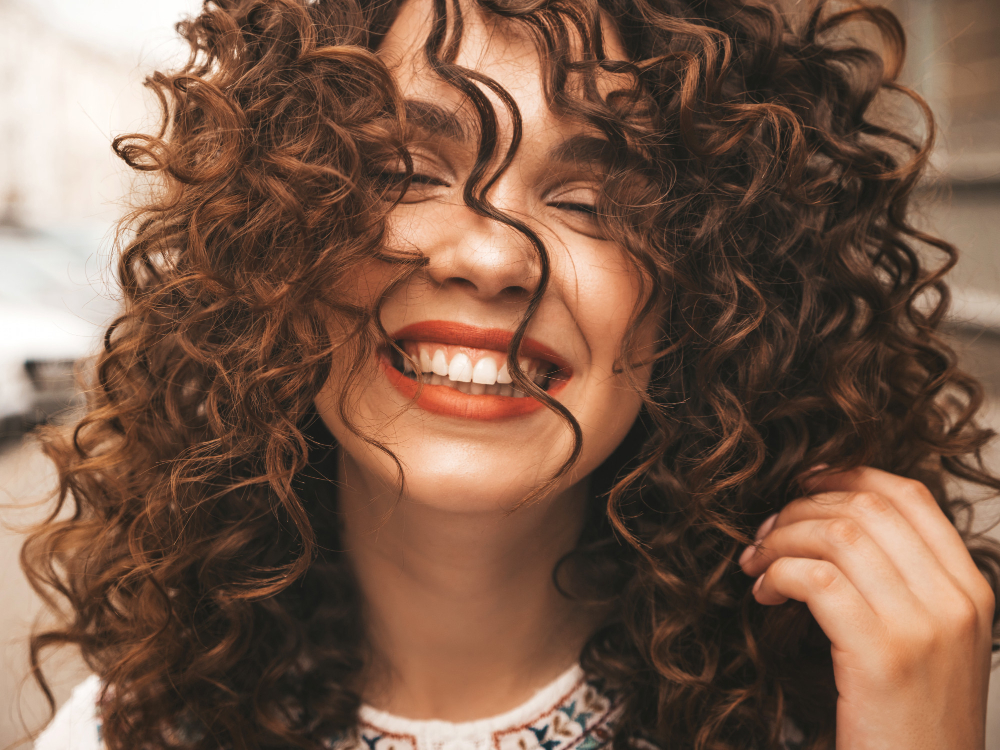
By making small changes, you can rock any look while minimizing damage. Your hair becomes stronger, shinier, and healthier, even if you still occasionally wear some of the most common damaging hairstyles.
- Rotate styles to avoid stress on the same area
- Use protective products like hair gloss
- Consider consulting a stylist if unsure which style suits your hair type
💡 Tip: Swap cotton pillowcases for satin or silk to reduce friction overnight; your hair will thank you.
Protect Your Hair While Making a Statement
Even the most stylish looks don’t have to come at the cost of healthy hair. By avoiding the most damaging hairstyles, rotating styles, and using protective products, your hair can stay gorgeous, strong, and happy.
Book a consultation today to find out which styles and treatments suit your hair best: Book Now.
FAQ
Can braids damage your hair?
Yes, braids can damage hair when they are too tight. They pull at natural hair, adding weight and causing breakage. However, you can prevent this by wearing your braids a bit looser from the start.
What hairstyle can I wear to prevent damage?
You can wear a loose, low, classic ponytail to keep your hair together and protected. It has a low tension and keeps your hair out of your face.
How can I tie my hair without causing damage?
We recommend choosing hair ties made of soft, stretchy fabric or wearing a claw clip to keep your hair in place.
Are hair extensions damaging?
Extensions can pull on natural hair if heavy or improperly applied. Choose clip-free or semi-permanent types, like tape-in extensions, to reduce stress.

